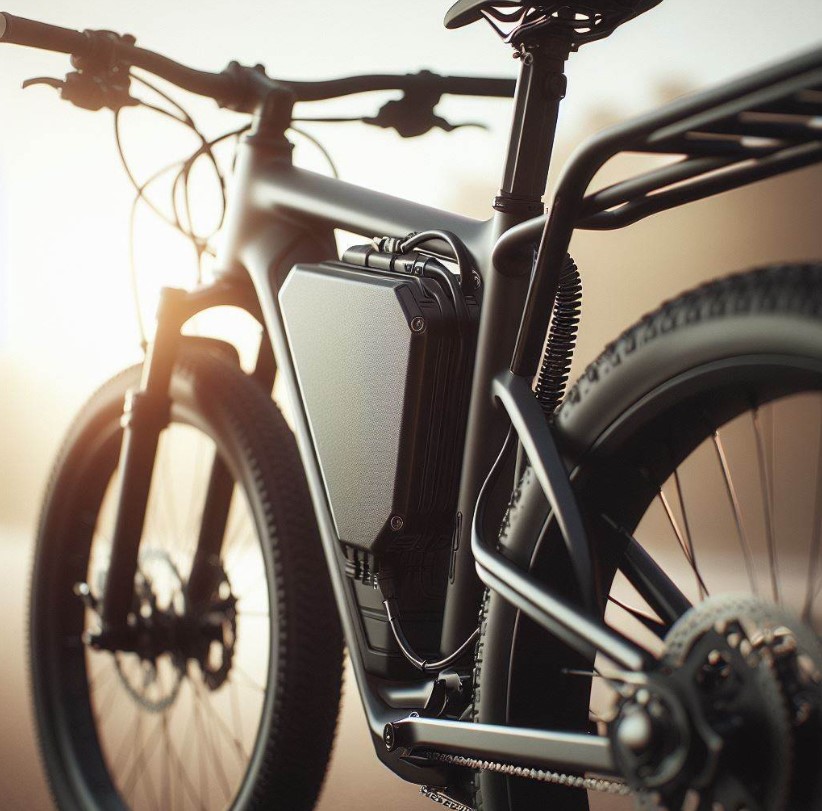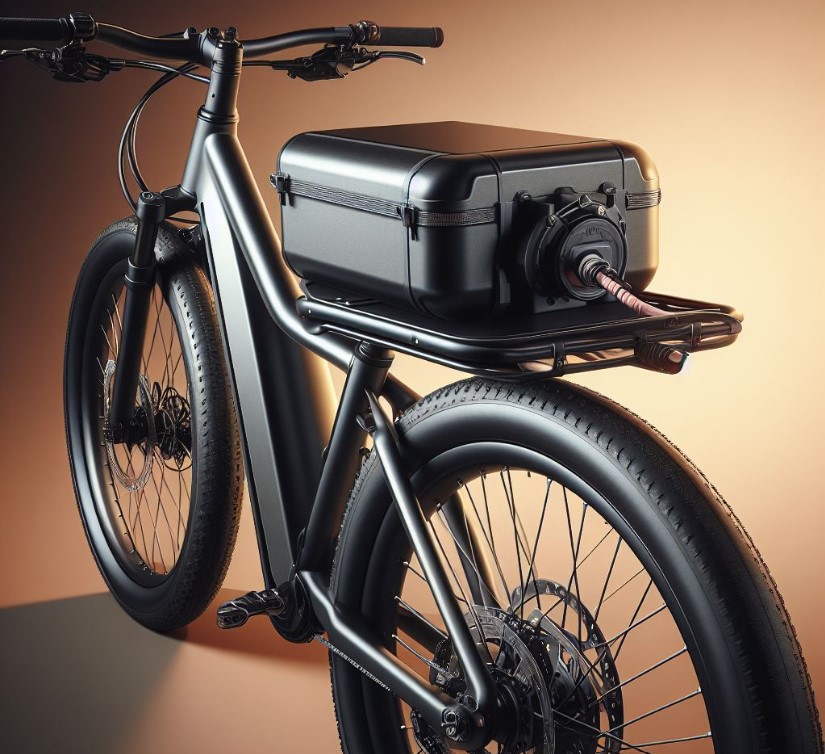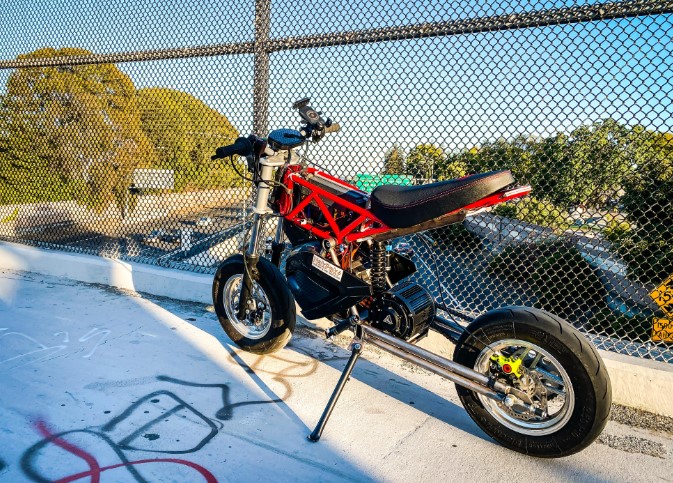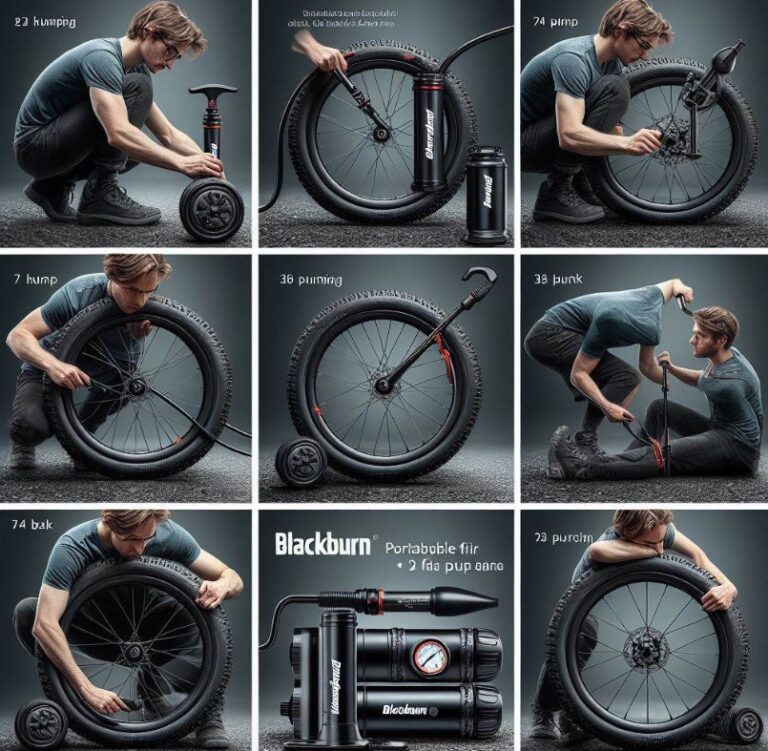What Size Battery Is Best For Electric Bike? Answered
Are you looking for What Size Battery Is Best For Electric Bike? Selecting the best size battery for an electric bike is a crucial decision that affects performance, range, and overall riding satisfaction. The ideal battery size varies based on individual riding habits, terrain, and distance needs. This guide explores the factors influencing battery choice, ensuring riders make an informed decision for an enhanced e-biking experience.
Key Takeaways
- Optimal battery size enhances range and performance.
- Considerations include riding style, terrain, and distance.
- Battery capacity is measured in watt-hours (Wh).
What Size Battery Is Best For Electric Bike?
The optimal battery size for an electric bike typically ranges between 400Wh to 700Wh for most riders, balancing range, weight, and efficiency effectively.

Understanding Battery Capacity
What Determines Battery Size?
The heart of an electric bike’s performance lies in its battery capacity, measured in watt-hours (Wh). This figure represents the potential energy stored, dictating how far you can ride on a single charge. A larger capacity means longer distances but also adds weight and cost.
Calculating Your Needs
To find the sweet spot, consider your average ride length, the terrain, and your riding style. A battery ranging from 250Wh to 700Wh generally suits most riders’ needs, offering a balance between weight and range.
Battery Type and Efficiency
Lithium-ion Batteries: The Standard Choice
Lithium-ion batteries dominate the e-bike market due to their high energy density and long lifespan. These batteries offer a great balance of weight, capacity, and reliability, making them the preferred choice for most e-bike enthusiasts.
Understanding Efficiency and Losses
Battery efficiency is not just about capacity. Factors like temperature, age, and how you ride influence the actual range. Efficient battery management systems (BMS) can help mitigate energy losses, ensuring you get the most out of your battery.
Impact of Terrain and Riding Style
How Terrain Affects Battery Choice
Riding on hilly terrain or carrying heavy loads demands more from your battery. Opting for a higher capacity battery ensures that you won’t be left stranded on a steep incline or halfway through your journey.
Tailoring Battery Size to Your Riding Style
Whether you’re a leisure rider or a daily commuter, your riding style influences battery size. More aggressive riding styles require more power, thus a larger battery, whereas leisurely rides on flat terrains can be managed with a smaller capacity.
Range Expectations and Real-World Usage
Setting Realistic Range Expectations
Manufacturers often advertise the maximum range under ideal conditions. It’s important to adjust these figures to reflect real-world conditions, such as mixed terrains and stop-start urban cycling.
Calculating Range for Your Needs
Understanding the factors that affect range can help you choose a battery size that matches your typical use case, ensuring you have enough power for your daily adventures without carrying unnecessary weight.
Cost vs. Capacity: Finding the Balance
The Cost Implication of Larger Batteries
While a larger battery extends your range, it also increases the cost and weight of your e-bike. It’s essential to balance your range needs with your budget and how much weight you’re willing to carry.
Optimizing Battery Life and Longevity
Investing in the right battery size extends beyond initial cost and range. Proper care and charging habits can significantly impact the longevity and performance of your e-bike battery, making it a crucial factor in your decision-making process.
Does A Bigger Battery Mean More Power On An Ebike?
A bigger battery in an electric bike does not directly translate to more power but rather to a greater capacity to store energy, which results in a longer range. The power of an e-bike is determined by its motor, measured in watts (W), which dictates how much force the bike can generate.

In contrast, a battery’s capacity is measured in watt-hours (Wh), indicating how long the bike can sustain that power output. A larger battery capacity means you can ride longer distances on a single charge because it stores more energy.
However, the actual power output, meaning how fast the bike can go or how steep of a hill it can climb, is a function of the motor’s strength, not the battery’s size. Therefore, when considering a bigger battery, the primary benefit is an extended range rather than an increase in power.
Is 500Wh Battery Enough For An Ebike?
A 500Wh battery is considered sufficient for most electric bike riders, offering a balance between range and weight. On average, a 500Wh battery can provide a range of 25 to 70 miles per charge, depending on various factors such as the rider’s weight, terrain, level of pedal assistance, and the bike’s efficiency.

For daily commutes, urban cycling, or moderate weekend rides, a 500Wh battery typically meets the needs of most users. It strikes a good balance, allowing for significant distance coverage without excessively increasing the bike’s weight, which could impact handling and portability.
Riders looking for longer adventures or who frequently tackle steep terrains might opt for a larger capacity. However, for general use, a 500Wh battery is often ample, making it a popular choice among e-bike manufacturers and riders alike.
How To Choose Ebike Battery?
Choosing the right e-bike battery involves considering several critical factors to ensure it meets your specific riding needs. Firstly, capacity is key; measured in watt-hours (Wh), it determines how far you can ride on a single charge.
Think about your average ride distance and terrain to decide on the capacity that suits your needs. Battery type also plays a significant role; lithium-ion batteries are the most common due to their light weight, long life, and high performance, making them a preferred choice for most e-bikes.
Compatibility with your e-bike’s motor and electrical system is crucial. Ensure the voltage and connector types match your bike. Weight and dimensions of the battery affect the bike’s balance and portability; consider how these factors influence your riding experience and handling.
Additionally, brand and warranty matter; choosing a reputable brand with a solid warranty can save you from future headaches, offering peace of mind regarding quality and support.
Conclusion
In conclusion, the best size battery for an electric bike is one that aligns with your riding style, expected distances, and terrain challenges. A battery within the 400Wh to 700Wh range often offers a suitable balance for various needs, providing enough power for extended rides without excessive weight. Careful consideration of these aspects ensures your e-bike journey is both enjoyable and efficient.
Frequently Asked Questions
Can I replace the battery on my electric bike myself?
Many electric bike batteries are designed for easy replacement, allowing riders to swap them out with minimal tools. However, the complexity of replacement can vary by bike model and battery type. It’s essential to follow the manufacturer’s instructions closely or consult a professional to ensure proper installation and avoid damaging your bike.
How does temperature affect electric bike battery performance?
Temperature can significantly impact battery performance. Cold weather can reduce a battery’s range by slowing down the chemical reactions inside, while extremely hot temperatures can lead to overheating and accelerated degradation. It’s best to operate and store your battery within the manufacturer’s recommended temperature range.
Can I use a third-party battery with my electric bike?
While it’s technically possible to use a third-party battery with your electric bike, it’s crucial to ensure compatibility with your bike’s motor and electrical system. Using an incompatible battery can lead to performance issues or even damage your bike. Always consult with your bike manufacturer or a professional before making such changes.
Is it possible to overcharge an electric bike battery?
Modern electric bike batteries, equipped with sophisticated battery management systems (BMS), are designed to prevent overcharging by automatically stopping the charging process once fully charged. However, leaving the battery plugged in for an extended period, even with these protections, can still potentially affect its overall lifespan and performance. It’s best to unplug the battery once charged fully.

Welcome to the exhilarating world of Matt Rex, a professional car racer turned renowned vehicle enthusiast. Immerse yourself in his captivating blog as he shares heart-pounding adventures, expert reviews, and valuable insights on cars, trucks, jets, and more. Fuel your passion for speed and discover the beauty of vehicles through Matt’s engaging stories and meticulous expertise. Join the ever-growing community of enthusiasts who find inspiration and expert advice in Matt Rex’s blog—a digital hub where the thrill of speed meets the pursuit of knowledge.







